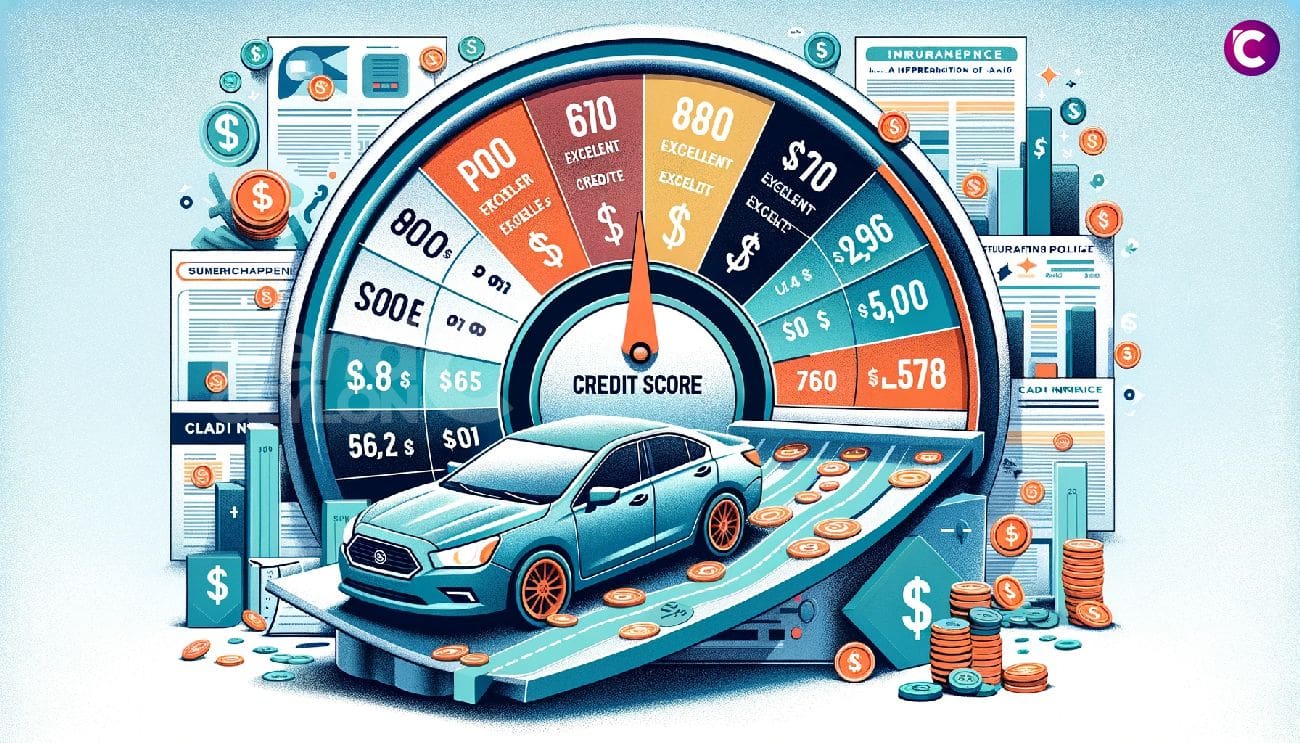In the United States, car insurance is vital to vehicle ownership. It’s not just about compliance with the law; it’s about financial protection and peace of mind. Your credit score is one of the lesser-known yet significant factors influencing your car insurance rates. This article will explore how credit scores impact car insurance rates in the U.S., why they matter, and how you can navigate this aspect of insurance to your advantage.
The Connection Between Credit Scores and Car Insurance Rates
What is a Credit Score?
A credit score is a numerical representation of an individual’s creditworthiness. It is based on a credit report, which includes your history of paying debts and managing credit accounts. Credit scores in the U.S. typically range from 300 to 850.
Why Do Insurers Consider Credit Scores?
Insurance companies use credit scores as part of their risk assessment process. The theory is that individuals with higher credit scores are more responsible and less likely to file claims, thus posing a lower risk to insurers.

How Credit Affects Your Insurance Premiums
Higher Scores, Lower Premiums
Generally, a higher credit score can lead to lower car insurance premiums. Insurers view customers with high credit scores as financially responsible, making them less likely to engage in risky driving behavior or file claims.
The Impact of Low Credit Scores
On the other hand, a lower credit score can lead to higher premiums. This is because individuals with lower scores are perceived as higher risk. They may be seen as more likely to miss payments or engage in risky driving behaviors.
Navigating Credit and Car Insurance
Improving Your Credit Score
Improving your credit score can lead to more favorable car insurance rates. This can be done by paying bills on time, reducing debt, and regularly checking your credit report for errors.
Shopping Around
Different insurers weigh credit scores differently. Therefore, shopping around for car insurance quotes can help you find a policy that emphasizes less credit or offers more competitive rates for your credit bracket.
State-Specific Regulations and Exceptions
States Where Credit Score is Not a Factor
In some states, like California, Hawaii, and Massachusetts, the use of credit scores in determining car insurance rates is restricted or banned. In these states, insurers rely more heavily on other factors like driving history and age.
Balancing Credit and Coverage
Your credit score is a significant yet often overlooked factor in determining your car insurance rates in the U.S. Understanding its impact, actively working to improve your credit health, and comparing different insurers can lead to substantial savings and more favorable insurance terms. By taking control of this aspect of your financial life, you can ensure that you are not only compliant with the law but also protected in a way that respects your financial standing.

















